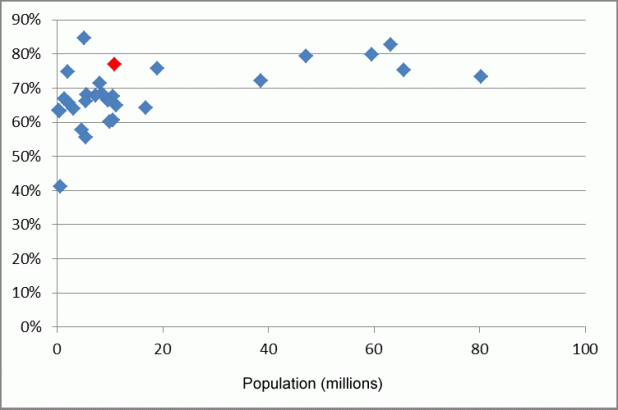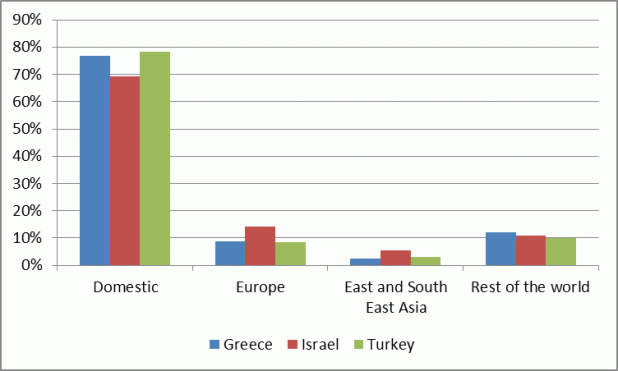A previous post on this blog looked at international trade from the perspective of value added rather than gross exports, that is to say, what proportion of a country’s exports have previously been imported from somewhere else. We found that the trade in components and parts for future export in finished goods is growing faster than the trade in the finished goods themselves, which demonstrates the growing complexity of supply chains and the importance of consistent international regulation.
In particular, the relatively low proportion of British exports that is foreign-produced value added, compared with the similar-sized countries of France and Germany, indicates a weakness in the British economy: its companies are not integrated enough into international supply chains and are thus missing out in quality and competitiveness compared with their competitors abroad.

The chart above shows the proportion of foreign-produced content in exports for countries of different sizes, and it shows a notable outrider (marked in red), which is Greece. Like the UK, Greece is 10 percentage points adrift of other countries of a similar size. This data confirms the previous observation that Greece was not really ready to join the euro when it did, and did not do enough to reform and modernise its economy once it had done so.
Another way to look at this is to compare Greece with its near neighbours Turkey and Israel. The chart below shows that Greece is no more integrated into the European market than Turkey is, despite Greece having been an EU member since 1981 and a eurozone member since 2001, and less integrated with the European market than Israel.

Fixing the problems of the Greek economy is not simply a matter of attending to the public finances and is a task that will take many years. It is not in the nature of the international bond markets to give sovereign debtors that long: if Greece is to be helped, that help can only come from other European countries. But are those countries ready to assist?
